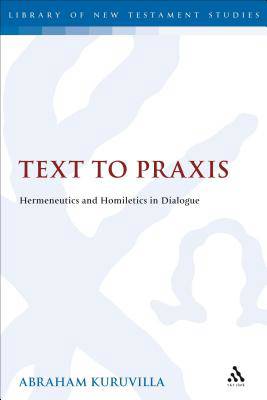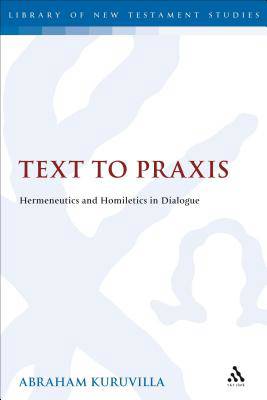
- Afhalen na 1 uur in een winkel met voorraad
- Gratis thuislevering in België vanaf € 30
- Ruim aanbod met 7 miljoen producten
- Afhalen na 1 uur in een winkel met voorraad
- Gratis thuislevering in België vanaf € 30
- Ruim aanbod met 7 miljoen producten
Omschrijving
A fundamental issue for preachers of the Bible has always been achieving an approach that is both faithful to the textual intention as well as fitting for the listening audience. What is historical and distant (the text) is, in preaching, made contemporary and near (praxis). Particularly pertinent is how this transaction may be conducted with respect to the self-contained and well-defined quantum of the scriptural text that is regularly employed in liturgical contexts-the pericope. This book answers the question: In a sermon intending to proclaim application from a pericope, what is the hermeneutical basis for moving validly from text to praxis, i.e., with authority and relevance?
The concept of theology as a bridge between text and praxis has not been specifically researched or rigorously substantiated. Kuruvilla seeks to do both, utilizing as entrées language philosophy, literary criticism, and a thorough understanding of "ordinary" language. Drawing from a variety of hermeneutical resources, he establishes "pericopal theology" as the intermediary between text and praxis. How this theology is discerned from the text and how application may be determined therefrom form the crux of this book. This novel approach lends validity to the movement from text to praxis and promises to be useful for any approach to the biblical text intended to culminate in application. Kuruvilla's approach provides a substantial technical basis for such an operation. Thus the preacher must be a "theologian-homiletician." It is the working out of this nomenclature, especially the "theologian" half of the appellation, that is the essence of this work, uniting as it does in one portfolio the responsibility of negotiating the demands of both hermeneutics and homiletics.Specificaties
Betrokkenen
- Auteur(s):
- Uitgeverij:
Inhoud
- Aantal bladzijden:
- 240
- Taal:
- Engels
- Reeks:
Eigenschappen
- Productcode (EAN):
- 9780567692023
- Verschijningsdatum:
- 19/09/2019
- Uitvoering:
- Paperback
- Formaat:
- Trade paperback (VS)
- Afmetingen:
- 156 mm x 234 mm
- Gewicht:
- 340 g

Alleen bij Standaard Boekhandel
Beoordelingen
We publiceren alleen reviews die voldoen aan de voorwaarden voor reviews. Bekijk onze voorwaarden voor reviews.











